Pharmacology
Pharmacology is the branch of science that deals with the study of drugs, including their composition, uses, and effects on living organisms. It is a crucial field in medicine and healthcare, as it helps in understanding how drugs work and how they can be used to treat various medical conditions.
Key Concepts in Pharmacology
- Drug Classification: Drugs can be categorized based on their chemical composition, therapeutic effects, and mode of action. Understanding the classification of drugs is essential for prescribing and administering them safely and effectively.
- Drug Administration: Pharmacology also covers the various methods of administering drugs, such as oral, intravenous, intramuscular, subcutaneous, and topical routes. Different administration routes affect the absorption and distribution of drugs in the body.
- Pharmacokinetics: This involves the study of how the body processes drugs, including absorption, distribution, metabolism, and excretion. Understanding pharmacokinetics helps in determining the appropriate dosage and frequency of drug administration.
- Pharmacodynamics: This refers to the study of how drugs exert their effects on the body at the molecular, cellular, and organ levels. It includes the mechanisms of action, therapeutic effects, and potential side effects of drugs.
- Drug Interactions: Pharmacology also covers the interactions between different drugs, as well as drug interactions with food, supplements, and other substances. Understanding drug interactions is crucial for avoiding adverse effects and optimizing treatment outcomes.
- Adverse Drug Reactions: This encompasses the undesired and potentially harmful effects of drugs, including side effects, allergies, and toxicities. Identifying and managing adverse drug reactions is an important aspect of pharmacology.
Study Guide for Pharmacology
To effectively study pharmacology, consider the following tips:
- Understand Drug Classes: Familiarize yourself with the major classes of drugs, including antibiotics, analgesics, antihypertensives, and psychotropic drugs. Learn about their mechanisms of action and therapeutic uses.
- Master Pharmacokinetics and Pharmacodynamics: Focus on understanding how drugs are absorbed, distributed, metabolized, and excreted in the body. Also, learn about the mechanisms by which drugs produce their effects and how these effects are influenced by drug concentrations.
- Learn about Drug Interactions: Study the common drug interactions and their potential consequences. Understand the principles of drug synergy, antagonism, and potentiation.
- Explore Adverse Drug Reactions: Familiarize yourself with the common side effects and adverse reactions associated with different drug classes. Understand the factors that contribute to adverse drug reactions and how they can be managed.
- Stay Updated with Current Research: Keep abreast of the latest developments in pharmacology by reading scientific journals, attending conferences, and following reputable sources in the field.
By mastering the key concepts and continuously expanding your knowledge, you can become proficient in pharmacology and contribute to the safe and effective use of drugs in healthcare.
.◂Science Worksheets and Study Guides Eighth Grade. The Digestive System & Nutrition
Study Guide The Digestive and nutrition
The Digestive and nutrition  Worksheet/Answer key
Worksheet/Answer key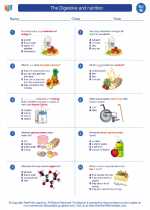 The Digestive and nutrition
The Digestive and nutrition  Worksheet/Answer key
Worksheet/Answer key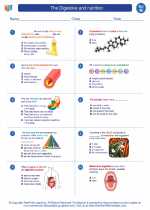 The Digestive and nutrition
The Digestive and nutrition  Worksheet/Answer key
Worksheet/Answer key The Digestive and nutrition
The Digestive and nutrition  Vocabulary/Answer key
Vocabulary/Answer key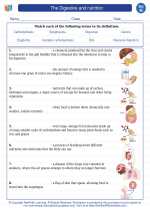 The Digestive and nutrition
The Digestive and nutrition  Vocabulary/Answer key
Vocabulary/Answer key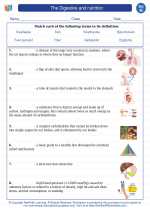 The Digestive and nutrition
The Digestive and nutrition  Vocabulary/Answer key
Vocabulary/Answer key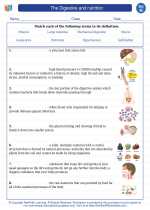 The Digestive and nutrition
The Digestive and nutrition  Vocabulary/Answer key
Vocabulary/Answer key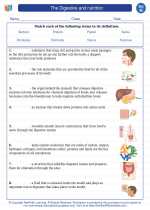 The Digestive and nutrition
The Digestive and nutrition  Vocabulary/Answer key
Vocabulary/Answer key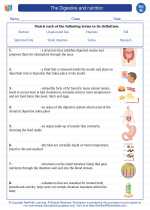 The Digestive and nutrition
The Digestive and nutrition 

 Worksheet/Answer key
Worksheet/Answer key
 Worksheet/Answer key
Worksheet/Answer key
 Worksheet/Answer key
Worksheet/Answer key
 Vocabulary/Answer key
Vocabulary/Answer key
 Vocabulary/Answer key
Vocabulary/Answer key
 Vocabulary/Answer key
Vocabulary/Answer key
 Vocabulary/Answer key
Vocabulary/Answer key
 Vocabulary/Answer key
Vocabulary/Answer key

The resources above cover the following skills:
Reading Standards for Literacy in Science and Technical Subjects
Craft and Structure
Determine the meaning of symbols, key terms, and other domain-specific words and phrases as they are used in a specific scientific or technical context relevant to grades 6-8 texts and topics.